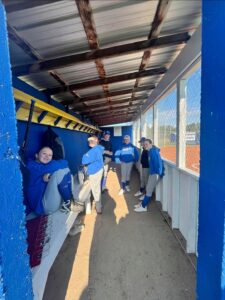By Rechell McDonald
Ken Barker, the Mountie who witnessed a man beheaded on a Greyhound bus, has taken his own life. It happened last weekend, after a long struggle with PTSD related to the incident. Barker had recently retired from the force.
Barker marks number 13 on the list of first-responders that have taken their own lives in the last three months, and what is now being called a national epidemic. First-responders, from police and paramedics to fire-fighters and soldiers, witness some of the most horrific things mankind can conjure. First-responders are the ones we call during emergency situations. If we are in a car accident or witness one, there is a natural disaster or we ourselves commit a crime, first-responders are the ones we deal with. This often puts them in situations where they see abuse of all kinds, tragic accidents and untold amounts of human carnage. It’s no wonder some of them can’t sleep at night.
The issue is an ongoing debate, a debate that has always been a paradox for the first-responder. People don’t admit they have PTSD for fear of ridicule from their fellow responders, and this leads to them coping in the most extreme ways. For those who do come forward, there is ridicule, feeling as if they have failed in their duties and, of course, the issue of them no longer being able to fulfill their job duties. No matter what they do, the result is less than desirable.
The government claims that those who come forward do receive the care they need, but with over 24 per cent of first-responders suffering from PTSD, many think that not only is it not enough, but in many ways the issue isn’t being addressed in the appropriate manner.







More Stories
Community spirit shines at large-scale youth baseball event
Birthday party chaos sung beautifully by Pumpjack Players’ youth in spring musical
Gearing up for another season of cars, cruising and camaraderie